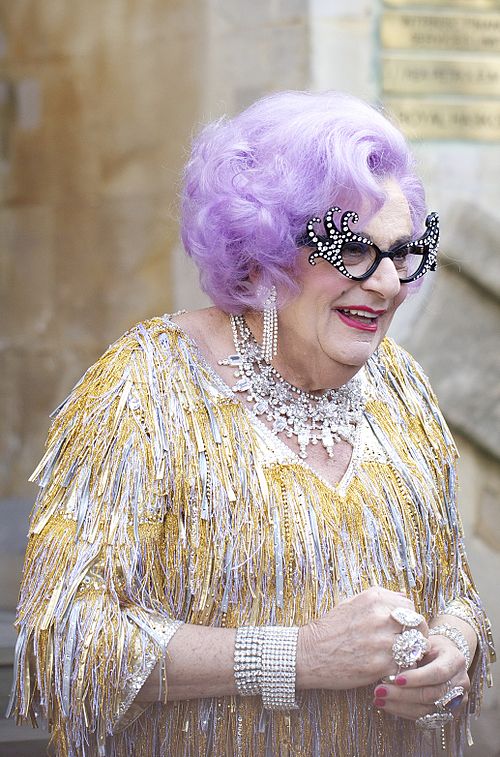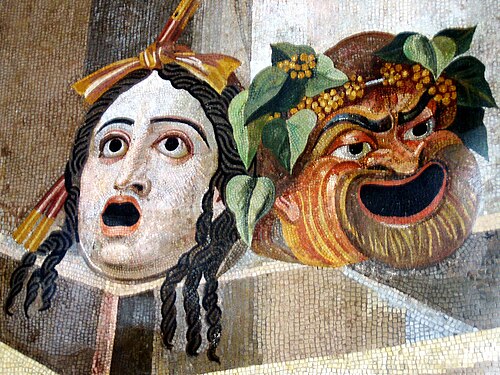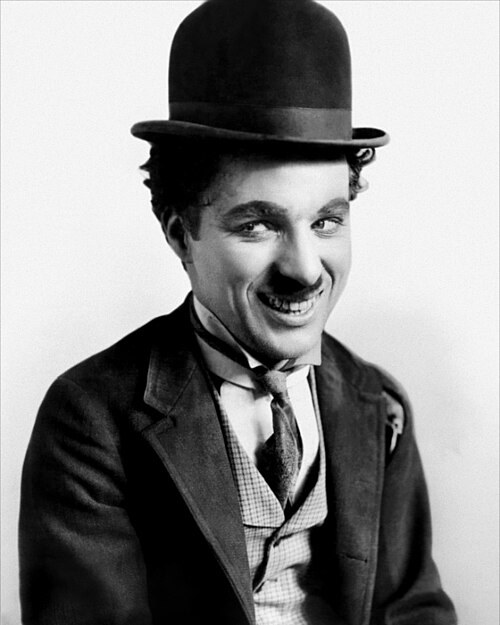Comedynoun
A choric song of celebration or revel, especially in Ancient Greece.
Comedynoun
(countable) A light, amusing play with a happy ending.
Comedynoun
A narrative poem with an agreeable ending (e.g., The Divine Comedy).
Comedynoun
A dramatic work that is light and humorous or satirical in tone.
Comedynoun
(drama) The genre of such works.
Comedynoun
(uncountable) Entertainment composed of jokes, satire, or humorous performance.
Comedynoun
The art of composing comedy.
Comedynoun
(countable) A humorous event.
Comedynoun
A dramatic composition, or representation of a bright and amusing character, based upon the foibles of individuals, the manners of society, or the ludicrous events or accidents of life; a play in which mirth predominates and the termination of the plot is happy; - opposed to tragedy.
Comedynoun
light and humorous drama with a happy ending
Comedynoun
a comic incident or series of incidents
Comedynoun
professional entertainment consisting of jokes and sketches, intended to make an audience laugh
Comedynoun
a film, play, or broadcast programme intended to make an audience laugh
Comedynoun
the style or genre represented by comedy films, plays, and broadcast programmes
Comedynoun
the humorous or amusing aspects of something
Comedynoun
a play characterized by its humorous or satirical tone and its depiction of amusing people or incidents, in which the characters ultimately triumph over adversity
Comedynoun
the dramatic genre represented by comedies
Comedy
Comedy (from the Greek: κωμῳδία, kōmōdía) is a genre of fiction comprised of discourses or works intended to be humorous or amusing by inducing laughter, especially in theatre, film, stand-up comedy, television, radio, books, or any other entertainment medium. The term originated in Ancient Greece: in Athenian democracy, the public opinion of voters was influenced by political satire performed by comic poets in theaters.
Farcenoun
(uncountable) A style of humor marked by broad improbabilities with little regard to regularity or method.
Farcenoun
(countable) A motion picture or play featuring this style of humor.
Farcenoun
(uncountable) A situation abounding with ludicrous incidents.
Farcenoun
(uncountable) A ridiculous or empty show.
Farceverb
To stuff with forcemeat.
Farceverb
(figurative) To fill full; to stuff.
Farceverb
(obsolete) To make fat.
Farceverb
(obsolete) To swell out; to render pompous.
Farceverb
To stuff with forcemeat; hence, to fill with mingled ingredients; to fill full; to stuff.
Farceverb
To render fat.
Farceverb
To swell out; to render pompous.
Farcenoun
Stuffing, or mixture of viands, like that used on dressing a fowl; forcemeat.
Farcenoun
A low style of comedy; a dramatic composition marked by low humor, generally written with little regard to regularity or method, and abounding with ludicrous incidents and expressions.
Farcenoun
Ridiculous or empty show; as, a mere farce.
Farcenoun
a comedy characterized by broad satire and improbable situations
Farcenoun
mixture of ground raw chicken and mushrooms with pistachios and truffles and onions and parsley and lots of butter and bound with eggs
Farce
Farce is a comedy that seeks to entertain the audience through situations that are highly exaggerated, extravagant, ridiculous, absurd, and improbable. Farce is also characterized by heavy use of physical humor; the use of deliberate absurdity or nonsense; satire, parody, and mockery of real-life situations, people, events, and interactions; unlikely and humorous instances of miscommunication; ludicrous, improbable, and exaggerated characters; and broadly stylized performances.





















